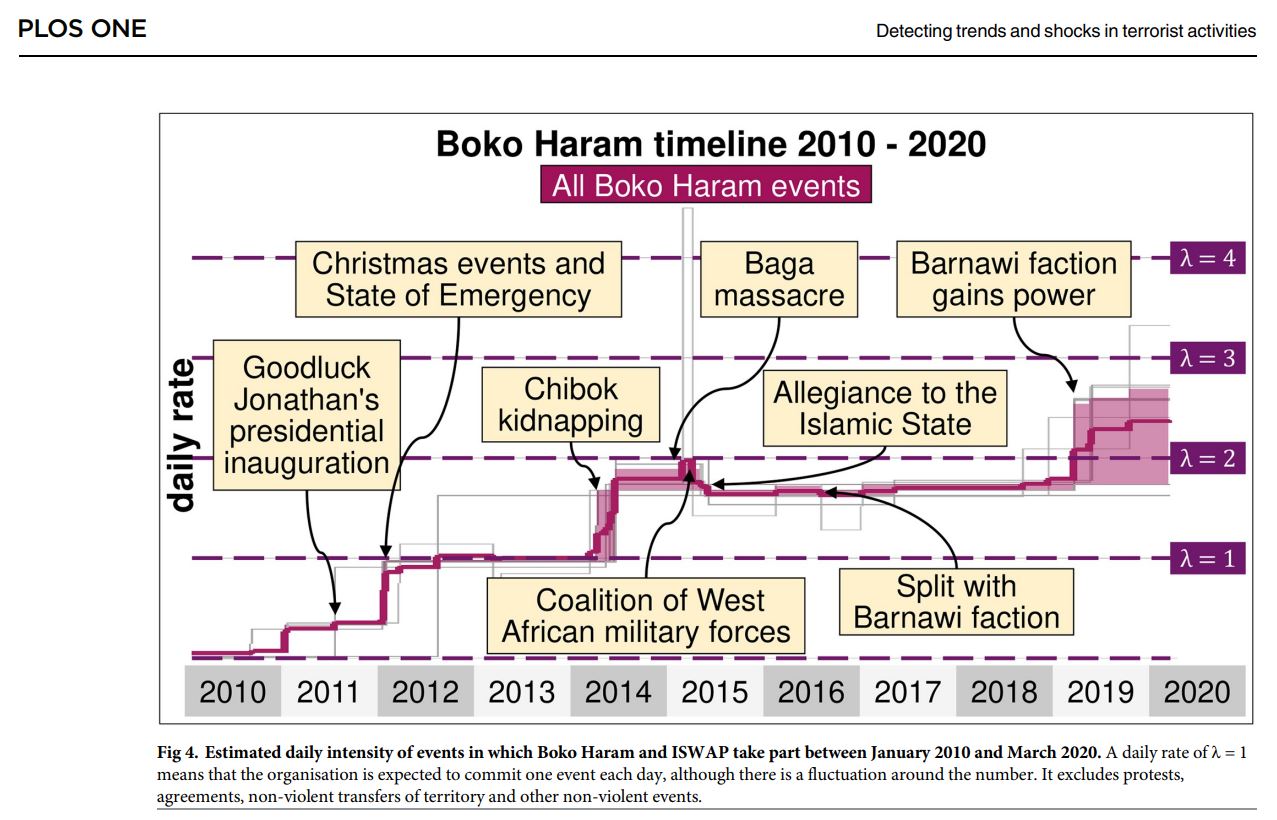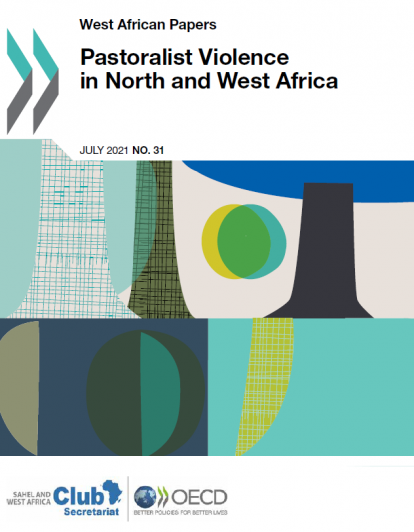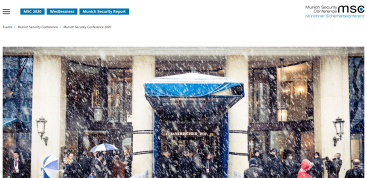
NEW REPORT – Roads and Conflicts. This report explores the relationship between transport systems and conflict dynamics in North and West Africa over 24 years. Roads, railways, and ports are essential for economic development and the movement of goods and people, forming one of the cornerstones of regional integration. Because of this role, they are also frequent targets of attack and conflict. Read our blob in The Conversation, or a summary in Le Monde (French) and El Pais (Spanish).

We have just launched a new Atlas of Mali. This project explores the geography of Mali, through 122 maps produced by the French National Geographic Institute.

On February 17, 2024, we presented our new study on conflict networks in North and West Africa at the Munich Security Conference, the world’s largest gathering of its kind. Our panel was organized by the OECD Sahel and West Africa Club.

Terrorist events are relatively rare, sparse and concentrated in time, which makes them difficult to monitor. In a new paper published in PLOS ONE, we develop a new technique to analyze such low frequency temporal events based on their cumulative curve and corresponding gradients. Leveraging disaggregated data on political violence from ACLED, we study the intensity of the two most violent terrorist organisations in Africa: Boko Haram and Al-Shabaab. Our analysis detects several breaking points in the distribution of violent events that correspond to internal and external change factors for terrorist organizations.

Violence moves to rural areas as urbanization increases in North and West Africa, according to a new OECD report and a new paper published in African Security by our lab. The expansion of Jihadist insurgencies explains this ruralization of conflict that affects a growing number of civilians and border regions.

Twenty-one years after 9/11, we modelled the geography of the network member’s many travels from the moment the hijackers first boarded a plane to the United States until they killed 2,977 people on September 11, 2001. Our work was published by Lawfare. A longer version is available as a working paper on SSRN. The data and code are freely accessible on GitHub.

Our edited book “African Border Disorders. Addressing Transnational Extremist Organizations” is now available in Open Access, thanks to the generous support of the University of Florida. African Border Disorders explores the complex relationships that bind states, transnational rebels and extremist organizations, and borders on the African continent. Combining cutting edge network science with geographical analysis, the book highlights how the fluid alliances and conflicts between rebels, violent extremist organizations and states shape in large measure regional patterns of violence in Africa

The new OECD report “Borders and Conflicts in North and West Africa” was launched at the Munich Security Conference this weekend by Dr. Steve Radil and Mr. Laurent Bossard. In this report, our Lab examined the increasing importance of North and West African border regions in the development of armed conflicts since the end of the 1990s. Building on a disaggregated analysis of more than 171 000 violent events from ACLED, we show that border regions are indeed more violent than other regions in general. The report also shows that the relationship of violent events to borders varies significantly over time as discrete episodes of conflict have waxed and waned within the region. Finally, the report shows that, far from being solely determined by state failure or policy, border violence reflects larger political issues that can threaten a state’s very existence.

Matthew Pflaum discusses several crucial questions for the future of pastoralism in North and West Africa in a series of audio clips recently published by the OECD: Where does most pastoralist violence occur & how and why has it expanded? What has caused the rapid acceleration of pastoralist violence? Does the transnational nature of pastoralism pose a challenge to ending violence? What are some solutions to attenuating pastoralist violence in West Africa?
 This new OECD working paper by Matthew Pflaum challenges the presumed link between pastoralism and violence in North and West Africa by examining the geographical and temporal evolution of violence in which pastoralists are engaged as victims or perpetrators.
This new OECD working paper by Matthew Pflaum challenges the presumed link between pastoralism and violence in North and West Africa by examining the geographical and temporal evolution of violence in which pastoralists are engaged as victims or perpetrators.
 The new security report of the OECD maps the evolution of conflict and cooperation networks in North and West Africa since 1997. It was launched at the Sahel Coalition Seminar in march 2021 and coordinated by our lab.
The new security report of the OECD maps the evolution of conflict and cooperation networks in North and West Africa since 1997. It was launched at the Sahel Coalition Seminar in march 2021 and coordinated by our lab.
 Livestock is a key contributor to West Africa’s economy. Yet, regional patterns of livestock trade and their impact on disease transmission remain understudied in the region. In this new OECD working paper, Valerie Valerio shows that regional livestock trade operates in well-established corridors and relies on international trade communities and border markets. The paper draws substantially on an earlier publication published in PLOS ONE this year.
Livestock is a key contributor to West Africa’s economy. Yet, regional patterns of livestock trade and their impact on disease transmission remain understudied in the region. In this new OECD working paper, Valerie Valerio shows that regional livestock trade operates in well-established corridors and relies on international trade communities and border markets. The paper draws substantially on an earlier publication published in PLOS ONE this year.
 Due to the ongoing situation with COVID-19, the African Borderlands Research Network (ABORNE) annual meeting organized by the OECD Sahel and West Africa Club (SWAC/OECD) and the University of Florida Sahel Research Group (SRG) has been canceled and will be rescheduled to a future date. A special issue will be submitted to the Journal of Borderlands Studies.
Due to the ongoing situation with COVID-19, the African Borderlands Research Network (ABORNE) annual meeting organized by the OECD Sahel and West Africa Club (SWAC/OECD) and the University of Florida Sahel Research Group (SRG) has been canceled and will be rescheduled to a future date. A special issue will be submitted to the Journal of Borderlands Studies.
 Which regions have experienced the highest levels of political insecurity in North and West Africa since the late 1990s? Do conflicts tend to cluster or spread across the region, potentially across borders? And how do foreign military interventions affect the geography of conflict from Dakar to N’Djamena? Find out in this new OECD report. More information here. Watch Dr. Radil’s presentation here, and a similar presentation by Dr. Walther on YouTube here. A French version is now available.
Which regions have experienced the highest levels of political insecurity in North and West Africa since the late 1990s? Do conflicts tend to cluster or spread across the region, potentially across borders? And how do foreign military interventions affect the geography of conflict from Dakar to N’Djamena? Find out in this new OECD report. More information here. Watch Dr. Radil’s presentation here, and a similar presentation by Dr. Walther on YouTube here. A French version is now available.
 The OECD launched its new report on security at the 2020 Munich Security Conference on February 14. This report – which we drafted – is analyzing the changing geography of conflict in North and West Africa since 1997. More information here.
The OECD launched its new report on security at the 2020 Munich Security Conference on February 14. This report – which we drafted – is analyzing the changing geography of conflict in North and West Africa since 1997. More information here.